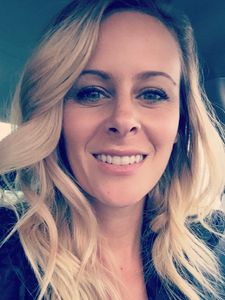[Sheree Bekker] In the lead up to the 13th Australasian Injury Prevention and Safety Promotion Conference, I invited keynote speaker Dr Alison Baker-Lewton to answer a few questions for our blog.

Alison Baker-Lewton is a Senior Lecturer in Social Pedagogy in the College of Arts and Education at Victoria University in Melbourne. She received her PhD in Psychology in the Public Interest (Community Psychology) at North Carolina State University. Her research draws on critical community psychology, public health and education to explore how inequality impacts young people from marginalized backgrounds, focusing on social identities, sense of belonging and health and well-being. This research has focused on the contexts and ecologies of young people’s lives, including neighborhoods, schools and local arts and sports programs.
Over the past several years a significant part of her research has examined racialisation as a form of structural violence and its impact on young people in Australia. This has included experiences of both adults and young people of African background who have come to Australia as migrants/refugees, drawing attention to the role of settings and activities (i.e. sports, alternative education, community-based arts) as well as the symbolic resources deployed in the development of identity, belonging, and social action. In her research she has mobilised critical race theories and liberation psychology to map empowered community responses and narratives of resistance. Using visual and sound research methodologies, this work has explored possibilities for social change and activism through public and community pedagogies.
Tell us about your training and role in public health
My training and PhD were in the sub-discipline of community psychology, which is explicitly committed to promoting empowerment and takes a strengths-based approach to working with communities towards individual and collective wellbeing. The discipline emphasises a collaborative approach to working with diverse groups and communities to leverage resources and develop strategies to transform oppressive social environments. My experience in public health has been closely tied to Community-Based Participatory Research (CBPR) approaches, specifically using creative and arts-based research with young people to explore social issues related to their lives.
What is your research focused on, and what do you see as the issues currently facing public health?
My current research projects are focused on the use of community-based arts as a catalyst for community and civic engagement among young people from underrepresented groups. One strand of this research focuses on young people’s experiences of racialisation and the implications for identity and belonging across contexts. I am especially interested in blending creative research methodologies and documentary techniques to develop young people’s sense of social justice and capacity for action. Most recently this has been in collaboration with young African-Australian women to explore topics such as misrepresentation in the media, mental health and hair and cultural identity.
How does your research Take Action?
My research with young people aims to take action by bringing their voices to a broader audience, which can challenge negative stereotypes and facilitate dialogue about the issues they face in their lives.
In the academy, we have been taking action in writing about whose knowledge is valued and what constitutes knowledge. Often, collaborative community research that uses arts or cultural practice is not understood as empirical evidence, however, we have been pushing the idea of inclusive knowledges as a way to democratise research.
What can emerging researchers learn from you?
That doing research with communities requires us to think critically about ourselves, our position and privilege, and to even challenge some of the things we are taught as fledgling academics.
What are you looking forward to most about your upcoming trip to Ballarat?
I haven’t been back to Ballarat for a proper visit since I was 7 years old! I remember mining for gold with a little pan, but coming up empty handed. I’m looking forward to coming back to see how much Ballarat has changed.
Earlybird registration for the 13th Australasian Injury Prevention and Safety Promotion Conference is now open!